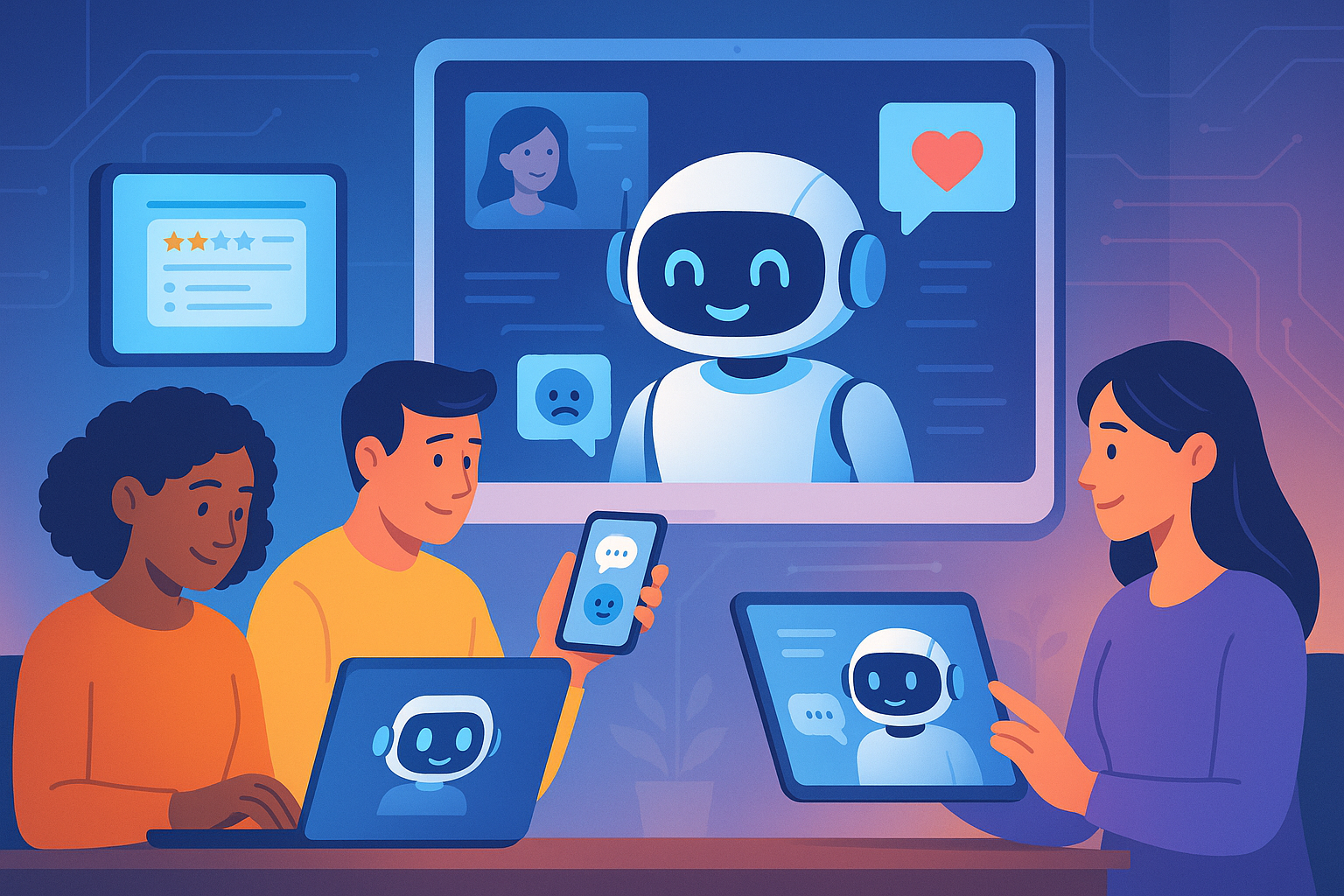Transforming Customer Engagement in the Digital Age with AI

AI-powered customer engagement tools are fundamentally transforming the way brands nurture authenticity and meaningful relationships in the digital age. By combining automation, advanced analytics, and natural language processing, leading organizations are delivering more personalized, human-like interactions—while maintaining a distinct and genuine brand voice.
Personalization and Human-like Interactions
Modern AI chatbots leverage natural language processing and machine learning to interpret, understand, and respond to customer queries with increasing nuance and empathy. Unlike simplistic, rule-based bots, next-generation conversational AI continuously learns and adapts, resulting in context-aware, tailored responses. Emotional analysis now allows these tools to gauge customer mood and intent, adjusting messaging to maintain a warm and authentic tone. This enables interactions that not only solve problems quickly but also feel personal and conversational.
Case Studies: Measurable Impact
Take Louis Vuitton as a prime example. The luxury brand implemented advanced AI chatbots and visual search technology, leading to remarkable outcomes including a significant reduction in customer service response times, increased user engagement, and a notable boost in online conversion rates. Similarly, Coca-Cola’s data-driven "Share a Coke" campaign personalized experiences, resulting in a 2% sales increase and an impressive surge in social media engagement.
On streaming platforms, Netflix showcases that over 80% of content watched now hinges on AI recommendations, significantly reducing churn. Major corporations like Starbucks and Walmart are also reaping the benefits, using AI for tailored marketing and retention strategies that measurably enhance sales and customer satisfaction.
Current Trends in AI Technology
As technology advances, several trends are taking center stage. Sentiment analysis allows brands to analyze emotional cues in real-time, enabling more empathetic responses. Furthermore, enhanced contextual understanding helps chatbots interpret multi-turn queries more effectively, leading to deeper, satisfying conversations. Brands are also exploring proactive engagement, where AI anticipates customer behaviors and preferences, enriching retention and loyalty.
Multi-channel strategies enable organizations to deploy AI across various platforms, from messaging to voice channels, ensuring seamless and consistent customer engagement.
Challenges: Balancing Automation with a Human Touch
Despite these advancements, there are challenges in balancing automation with the vital human touch. Over-reliance on AI can make interactions feel impersonal, jeopardizing brand authenticity. Key hurdles include maintaining a consistent brand voice and successfully handling complex scenarios requiring human intervention.
Best Practices for Navigating These Challenges
To conquer these challenges, businesses should deploy AI for routine tasks while seamlessly transitioning to human agents for nuanced issues. Regular monitoring and retraining of AI systems can help maintain brand messaging and tone. Leveraging AI insights can bolster broader customer engagement strategies, and fostering transparency about AI interactions can enhance trust with customers.
Expert Opinions and Outlook
Industry forecasts indicate that by 2025, a significant majority of customer service organizations will integrate generative AI tools aimed at augmenting staff efficiency while improving customer satisfaction. Companies that embrace strategic AI applications—focused on authenticity and personalization—are seeing tangible benefits in satisfaction, loyalty, and conversion rates.
For business owners, marketers, and developers, the future of digital engagement is hybrid: using the unmatched efficiency of AI, while ensuring the irreplaceable human elements that underpin authentic brand relationships remain intact.